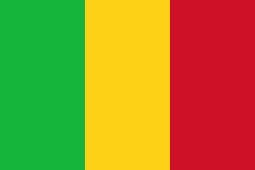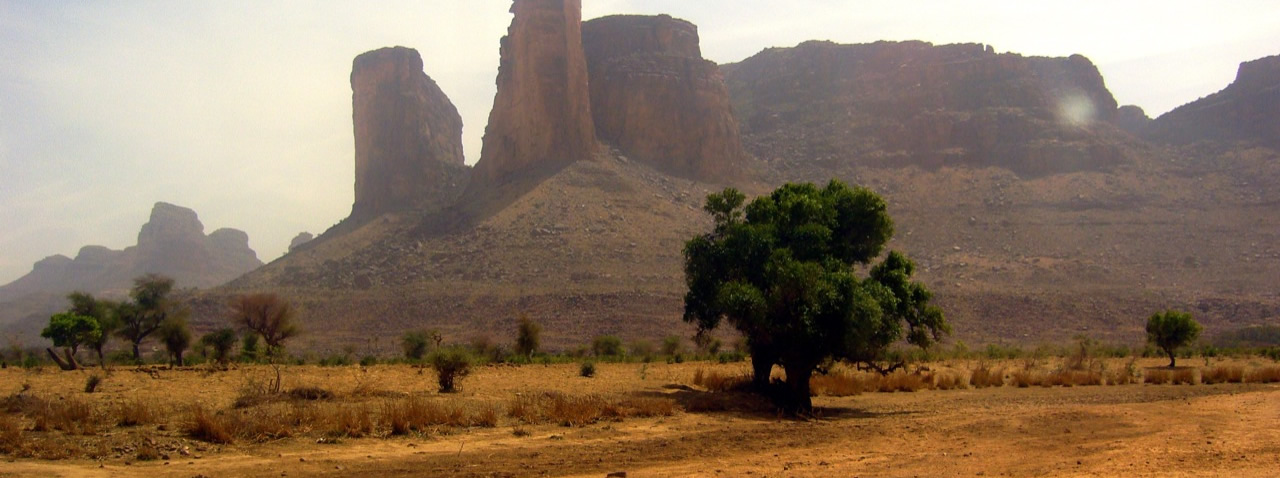Language/Bambara/Culture/Mali-Timeline
Jump to navigation
Jump to search
Rate this lesson:
Historical Timeline for Mali - A chronology of key events
Mali Timeline[edit | edit source]
| Date | Event |
|---|---|
Empires[edit | edit source] | |
| 750-1240 | Empire of Ghana. |
| 13th century | Beginning of the Mali Empire which includes present-day Mali, Senegal, Mauritania, Guinea, Gambia. |
| 1325 | An architect from Granada built the Djingareiber mosque in Timbuktu. |
| 1464-1591 | the Songhaï empire reigns supreme over the territory. |
Modern era[edit | edit source] | |
| 16th - 19th century | a mosaic of small states follow one another (the Bambara kingdoms of Ségou and Kaarta, the Fulani Empire of Macina, the Toucouleur Empire, etc.). The practice of slavery is growing. Both the Bambara and the Dogon are victims of the holy war led by the Mus |
Colonization[edit | edit source] | |
| 1857 | siege of the fort of Medina. Colonel Faidherbe progresses in the valley of Senegal and meets the resistance led by El Hadj Oumar Tall. |
| 1890 | creation of French Sudan. |
| 1892 | Kayes becomes the capital of French Sudan. |
| 1895 | the colony is integrated into French West Africa. |
| May 1, 1898 | the French colonial army takes Sikasso. |
| September 1898 | capture by the French army of Samory Touré, a figure of the African resistance. |
| 1900 | end of colonial penetration in Mali. |
| 1904 | French Sudan is integrated into the colony of Haut Senegal-Niger. Inauguration of the Dakar-Niger railway line intended to transport goods to the port of Dakar. |
| 1920 | creation of Haute-Volta (now Burkina Faso). The remaining territory takes the name of French Sudan with Bamako as its capital. |
| 1945 | Fily Dabo Sissoko is elected member of the French parliament. |
| 1946 | creation in Bamako of the African Democratic Rally. The Sudanese section is headed by Modibo Keita. |
From independence to the present day[edit | edit source] | |
| 1958 | the Sudanese Republic is created within the French Community following a referendum 97% approved by the voters of Sudan. |
| January 17, 1959 | creation of the Federation of Mali made up of Senegal and the Sudanese Republic. |
| June 20, 1960 | the Federation of Mali obtains its independence. |
| September 22, 1960 | the Federation of Mali breaks up. Modibo Keita proclaims the independence of the Sudanese Republic under the name of Republic of Mali. Modibo Keita is appointed president of the country. Adoption of a constitution. |
| June 30, 1962 | Mali leaves the Franc Zone. Creation of the Malian franc. |
| May 13, 1964 | re-election of Modibo Keita. |
| November 19, 1968 | military coup. Modibo Keita is overthrown by Lieutenant Moussa Traoré. |
| December 6, 1968 | the Constitution is repealed, replaced by a fundamental law. |
| September 19, 1969 | Moussa Traoré becomes president of the provisional government. |
| 1974-1975 | first border conflict with Burkina Faso. |
| June 2, 1974 | referendum for a new Constitution. |
| June 19, 1979 | presidential and legislative elections. Moussa Traoré becomes President of the Republic. |
| March 8, 1980 | students demonstrate. |
| June 1, 1984 | integration into the West African Monetary Union (UMOA). The CFA franc replaces the Malian franc. |
| June 9, 1985 | presidential and legislative elections. Moussa Traoré is re-elected president. |
| December 1985 | second border conflict with Burkina Faso. |
| October-December 1990 | clashes with the Tuareg. |
| January 6, 1990 | a peace agreement is signed with the Tuareg. |
| March 26, 1991 | military coup. The armed forces create a national reconciliation council under the leadership of Lieutenant-Colonel Amadou Toumani Touré. |
| January 12, 1992 | the multiparty system and the presidential system are established by referendum. |
| April 26, 1992 | presidential elections. Alpha Oumar Konaré becomes President of the Republic. |
| 1994-1995 | clashes with the Tuareg resume. |
| March 26, 1996 | "flames of peace" ceremony. 3,000 Tuareg rebel weapons are burnt. |
| May 17, 1997 | presidential elections. Alpha Oumar Konaré is re-elected. |
| May 2, 1999 | municipal elections in four regions of Mali. |
| November 21, 2000 | the president launches the decentralization policy. |
| December 2, 2000 | creation of a High Council for the fight against AIDS, chaired by Alpha Oumar Konaré. |
| January 16, 2002 | creation of a High Islamic Council of Mali intended to represent Malian Muslims vis-à-vis the authorities. |
| May 12, 2002 | presidential elections. Amadou Toumani Touré, opposition candidate, becomes president of Mali. |
| July 14 and 28, 2002 | legislative elections. The RPM (Rassemblement pour le Mali) wins. |
| October 16, 2002 | after long negotiations, a government of national unity is formed. |
| April 18 to 22, 2005 | the 9th session of the Joint European Assembly - ACP countries is held in Bamako. African countries are asking for debt cancellation. |
| December 2005 | the 23rd Africa-France summit is held in Bamako. Jacques Chirac goes to Mali to meet African heads of state there. The French president addresses the youth in need of a future, evokes the problem of immigration and the difficulties caused by globalization |
| January 19 to 23, 2006 | Bamako World Social Forum, anti-globalization rally. A first in Africa. |
| May 26, 2006 | the Kidal region is occupied from the east. |
| July 4, 2006 | signing of the Algiers accords which put an end to the insurrectional situation that reigns in northern Mali. |
| 2007 | Amadou Toumani Touré is re-elected president in the first round with 71.2% of the votes cast. |
| April 15, 2008 | the "rice operation plan", costing 45 billion FCFA, was launched by the government following the sharp rise in grain prices. |
| September 22, 2010 | fiftieth anniversary of the Independence of Mali. |
| 2012 | presidential elections. |
Source[edit | edit source]
World Timelines[edit source]


